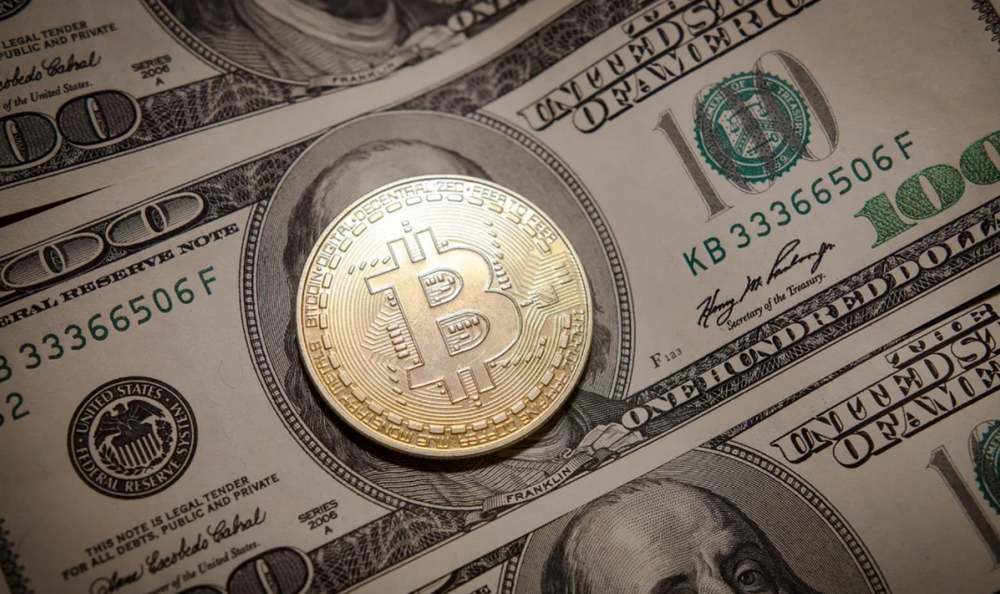35 foreign-funded companies have patent cards on blockchain in China, with Microsoft, Oracle and Wal-Mart in the list
Article | Interchain Pulse · Yuanshang
As of the end of the first quarter of 2020, a total of 35 foreign companies have applied for blockchain-related patents in China with a total number of 212 patents. Although only a fraction of the tens of thousands of domestic patent applications, most of the applicants The road is extraordinary. Global giants such as Mastercard, Sony, Panasonic, Intel, Microsoft, Oracle and others are among the list.
Four echelons of blockchain patent applications in China
In general, foreign companies applying for patents in China mean building patent barriers to better carry out related business in China. Observed from the quantity, the enterprises applying for blockchain patents in China are divided into four echelons.
Headquartered in New York, USA, MasterCard is the multinational company with the largest number of blockchain-related patent applications in China and the first echelon. In 2016, Mastercard applied for blockchain patents in China through Mastercard International and Mastercard International Co., Ltd., with a total of 46 applications, accounting for 21.7% of multinational companies' applications in China.
- People's Financial Review: Is virtual currency a safe-haven asset beyond gold and silver? fake!
- Economic Daily: How deep is the “water” of virtual currency trading? The plunge is just one of the many risks behind it
- Cao Yin: An economic crisis or an important opportunity for the rise of DeFi in an epidemic
The patents mainly focus on the payment business, including payment methods, payment hardware, payment security, payment transaction risk assessment, transaction party privacy protection, transaction result audit and so on.
Among foreign-funded companies, MasterCard is the first to apply for a patent in China because the company has already taken blockchain as an important task. In his own words: "In the development history of MasterCard, we are committed to reducing the use of cash and promoting the development of inclusive finance with emerging technologies from the beginning to the end, and the application development of blockchain is also our work content. One."
However, it should be noted that the number of MasterCard applications in 2017 and 2018 were 14 and 18, respectively, and only 5 in 2019, showing obvious convergence.
Behind MasterCard, Accenture Global Solutions Co., Ltd., Matsushita Electric Co., Ltd., Coin Prager Co., Ltd., Sony Corporation, Nokia Technologies Co., Ltd., Siemens AG, Intel Corporation, Fujitsu Corporation, Microsoft Technology Licensing Co., Ltd. The 10 companies, Oracle and Oracle, belong to the second echelon of blockchain patent applications in China. The number of applications is 16-9.
In the second echelon, except Coin Prager Co., Ltd., the rest are the top 500 companies in the world, and most of them are technology companies.
Unlike MasterCard which regards blockchain as a necessity, technology companies need to study the attitude of blockchain to avoid falling behind. But because of its technical resources, it has advantages in the research and development of blockchain. Most of their patents are concentrated in the underlying technology of blockchain technology.
The third echelon applied for 4-2 block chain patents in China. Most of them are internationally renowned companies, including Japan Telecom and Telephone Co., Ltd., Samsung SDS Co., Ltd., Ericsson (China) Communications Co., Ltd., Barclays Bank Open Co., Ltd., Ten companies including Thomson Reuters Global Resources Unlimited, Boeing, Canada Phillip Advertising, Wal-Mart Apollo Co., Ltd., Nomura Research Institute, and Denso Co., Ltd. This echelon category is complex, with banks, communications, media, traditional manufacturing, securities, and retail.
The patents of the third echelon are mostly focused on blockchain applications, which is an extension of their own business.
 (Tabulation: Inter-chain pulse data source: Dawei patent as of March 31, 2020)
(Tabulation: Inter-chain pulse data source: Dawei patent as of March 31, 2020)
The Fourth Echelon has only applied for one blockchain patent in China. There are established companies and startup companies. Including LO3 Energy Co., Ltd., PLC Group Company, SAP Europe, TBSX3 Co., Ltd., WFS Technology Co., Ltd., ZF Friedrichshafen AG, Alcatel-Lucent, Australian National ICT Ltd., Wells Fargo, Fuji Xerox Co. , Harman International Industrial Co., Ltd., Korea Institute of Electronic Communications, Oji Dax Corporation, Bandai Namco Entertainment. Its patents in China are also mainly applied.
U.S.-funded and information industries
35 foreign capitals, 13 US capitals accounted for 37%. Secondly, 8 Japanese companies accounted for 23%; 3 Korean companies accounted for 8%, and 3 German companies accounted for 8%.
 (Tabulation: Inter-chain pulse data source: Dawei patent as of March 31, 2020)
(Tabulation: Inter-chain pulse data source: Dawei patent as of March 31, 2020)
According to the industry classification of foreign-invested companies, there are 17 information technology companies, accounting for 49%. Information technology companies include computers, software, communications, blockchain, and the Internet of Things, of which six are in the communications field.
The second is manufacturing, with 9 companies accounting for 26%. There are 4 auto parts and 3 home appliances in manufacturing companies. There are four financial and broad media industries, each accounting for 11%.
 (Tabulation: Inter-chain pulse data source: Dawei patent as of March 31, 2020)
(Tabulation: Inter-chain pulse data source: Dawei patent as of March 31, 2020)
It is worth noting that foreign-funded companies' block chain patents are first, but they rarely launch actual block chain business in China. MasterCard started to distribute blockchain patents in 2016, but so far it has not announced the advancement of a blockchain business in China.
In the United States, IBM, the company with the largest number of blockchain patents, failed to record a blockchain patent application in China. In addition to this, including Google, Facebook, Amazon's blockchain business abroad is booming, but there is no patent application in China.
We will continue to update Blocking; if you have any questions or suggestions, please contact us!
Was this article helpful?
93 out of 132 found this helpful
Related articles
- Governor of the United Bank of the Philippines: The new crown virus epidemic will accelerate the adoption of central bank digital currency
- Viewing the privacy of the cryptocurrency era from the "room N incident": most cryptocurrencies in the market are not truly anonymous
- Babbitt Cloud Summit 丨 RRMine Global CEO Zou Yongcheng joins hands with 4 veteran miners to cross-border dialogue on the halving of the global shock
- Bitcoin's Secret History: the man trying to end depression with the help of Bitcoin
- Why decentralization is not as important as you think
- Bitcoin network March analysis report: hash power gains grow slowly, difficulty or slightly reduced again
- Blockchain Application in Hangzhou Practice: "Blockchain +" Breakthrough to Solve Supply Chain Financial Problems






